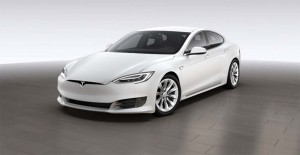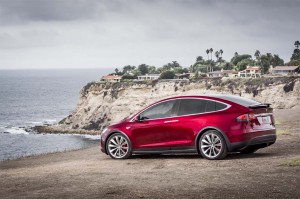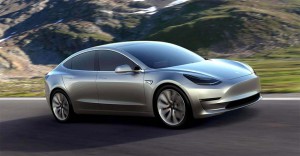The Tesla Model X posted what might be considered a very modest improvement in Consumer Reports’ latest annual Automotive Reliability survey: the influential magazine rating it the second-worst vehicle on the road after being ranked the absolute worst in 2017.
Tesla fared poorly, on the whole, in the closely followed study which looks at how readers rank the reliability of their vehicles. The California carmaker came in 27th among the 29 auto brands CR rated, ahead of only Cadillac and Volvo.
Perhaps the biggest disappointment for the carmaker came with the decision by Consumer Reports to withdraw its coveted “Recommended Buy” rating for the Model S sedan due to an increase in reliability issues. On the plus side, the magazine gave the new Model 3 an “average” score – though Jake Fisher, CR’s director of automotive testing, cautioned that Tesla will have to prove it can retain the compact battery-sedan’s quality as it adds more versions.
‘The most reliable cars should be electric vehicles,” Fisher said, during a presentation to the Automotive Press Association in Detroit on Wednesday afternoon. “There’s a lot less to go wrong” with an EV’s drivetrain.
(Tesla could have a surprise as it prepares for early earnings announcement. Click Here for the story.)
By comparison, many traditional automakers have struggled to deal with problems with the new turbo engines and advanced transmissions they’ve introduced in their push to improve fuel economy.

The Tesla Model S last its "Recommended Buy" rating from Consumer Reports due to an increase in owner complaints.
So, why is Tesla struggling on the quality and reliability front? For several reasons, according to Fisher. The Model X, in particular, pushed the technical envelope in ways that have created a variety of problems for Tesla and its owners. That includes, notably, the so-called “falcon wing” doors” that have been an ongoing source of repair issues. But even things like paint and body fits have given the company challenges.
Tesla appeared to be getting reliability issues under control with its big Model S. And after initially withdrawing the sedan’s “Recommended Buy” endorsement, CR added it back a couple years ago as quality appeared to be improving. But something happened during the last 12 months, said Fisher, and with owners reporting a sharp increase in problems, the recommendation has again been suspended.
Asked what might have gone wrong, Fisher noted that Tesla doesn’t follow the normal industry model, waiting for several years to make significant updates to its products. If anything, CEO Elon Musk has suggested the company will make parts and software changes as often as every week. That can be a plus when old problems are fixed and new features are added. On the other hand, it can also introduce new issues on a regular basis that can then take time to fix.
(Click Here for more about Elon Musk’s temporary silence on Twitter.)
The Models S and X also pose challenges since Tesla offers a wide number of variants for each product, including versions with front or all-wheel-drive, as well as different battery sizes.
The Model 3, Fisher noted, has been offered with relatively few options since production launched in July 2017. But the automaker is now rolling out new versions, including those with a smaller battery pack and others with all-wheel drive. That, he said, could create reliability issues going forward if Tesla is not careful.
It has become conventional wisdom that while buyers of the early Models S and X are classic early adopters, willing to accept problems in order to be the first on the block with new technology and, indeed, Fisher said “There are some people who will buy a Model S and, even if it breaks down, they are going to be very happy.” Customer satisfaction for those early models remains sky-high.
But what about buyers of the more mainstream Model 3? It has also become conventional wisdom that they will be far less willing to face reliability issues. That may not prove accurate, Fisher said, based on the comments made by initial Model 3 buyers.
(To see more about Tesla meeting its Q3 production goal, Click Here.)
“They understand what they are getting into,” he told the Automotive Press Association audience, and seem far more willing to suffer reliability issues than with pretty much any other automotive brand.


